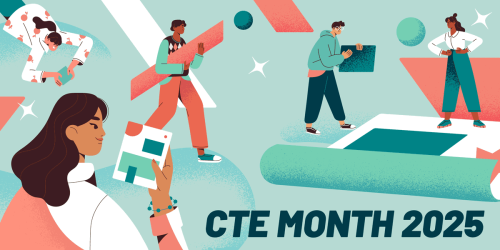Empowering Volunteers and Increasing Impact: Lessons from SMART’s Refreshed Volunteer Training Program

Education Northwest’s adult learning team works with organizations to help strengthen the delivery and effectiveness of their training programs—which can include streamlining training for large, widely dispersed groups.
We recently worked with Start Making A Reader Today (SMART), an Oregon-based nonprofit that seeks to improve reading outcomes for students by providing both access to books and fun, positive experiences with reading. The organization places adult volunteers in 300 Oregon schools to read one-on-one with about 10,000 students ranging from preschool to third grade.
With 5,000 volunteers spread out across Oregon, a challenge for SMART is ensuring that all volunteers receive consistent training experiences.
A priority for the organization is to make sure that key messages regarding equity and safety are consistently reaching volunteers through their training.
Education Northwest’s adult learning team worked with SMART to refine their existing volunteer training program and improve consistency of delivery. Our work with SMART taught us a few lessons that may be useful for others who are developing training programs for adult learners:
Let a Needs Assessment Guide Training Design
When we conducted focus groups and a survey with SMART volunteers, we learned that many critical messages were reaching volunteers inconsistently. In particular we found that some volunteers were not even aware of—or using—the training handbook and online training videos they received during their orientation, instead relying on individualized, ad hoc training.We loved Education Northwest's collaborative, strategic approach to developing SMART's new volunteer training program. We are thrilled with the results, which will empower SMART’s volunteers with the knowledge and skills to impact reading success for children in Oregon.
—Kanna Hudson, Interim Program Director
The focus groups and survey were essential to helping us determine the types of training products we ultimately recommended, as well as the right sequence for introducing them to volunteers; to make key messages stick for adult learners, the format of training materials and the timing of their delivery can be just as important as the content.
Vary Training Delivery Formats
Short online learning modules and video clips are great ways to deliver consistent messaging to large audiences. To ensure all volunteers are always receiving SMART’s most important messages, we created an online volunteer orientation that covers the basics of the program and volunteer roles.In this case, one-way online learning helped introduce volunteers to the essentials, but it didn’t allow the volunteers to become familiar with the specific school and community in which they would be working. Therefore, we recommended that SMART’s online volunteer orientation continue to be paired with an in-person orientation so volunteers could practice how to handle specific situations on-site at their school. For this orientation we helped create a revised training guide, which included scenario-based activities and demonstrations.
Create “Just-in-time” Resources
Introducing a lot of content upfront can sometimes lead to key messages getting lostIn our world of information overload, one way to optimize learning for busy adults is to provide them with the most essential content they will need to get started—and that they can put to use right away.
In the case of SMART, we saw an opportunity to print key information (such as tips for making reading fun, ways to affirm a student’s culture and reminders about safety policies) on folders the volunteers use every day to keep track of student paperwork.
The folders provide easily accessible reminders of what volunteers need to know in their day-to-day interactions with students.



